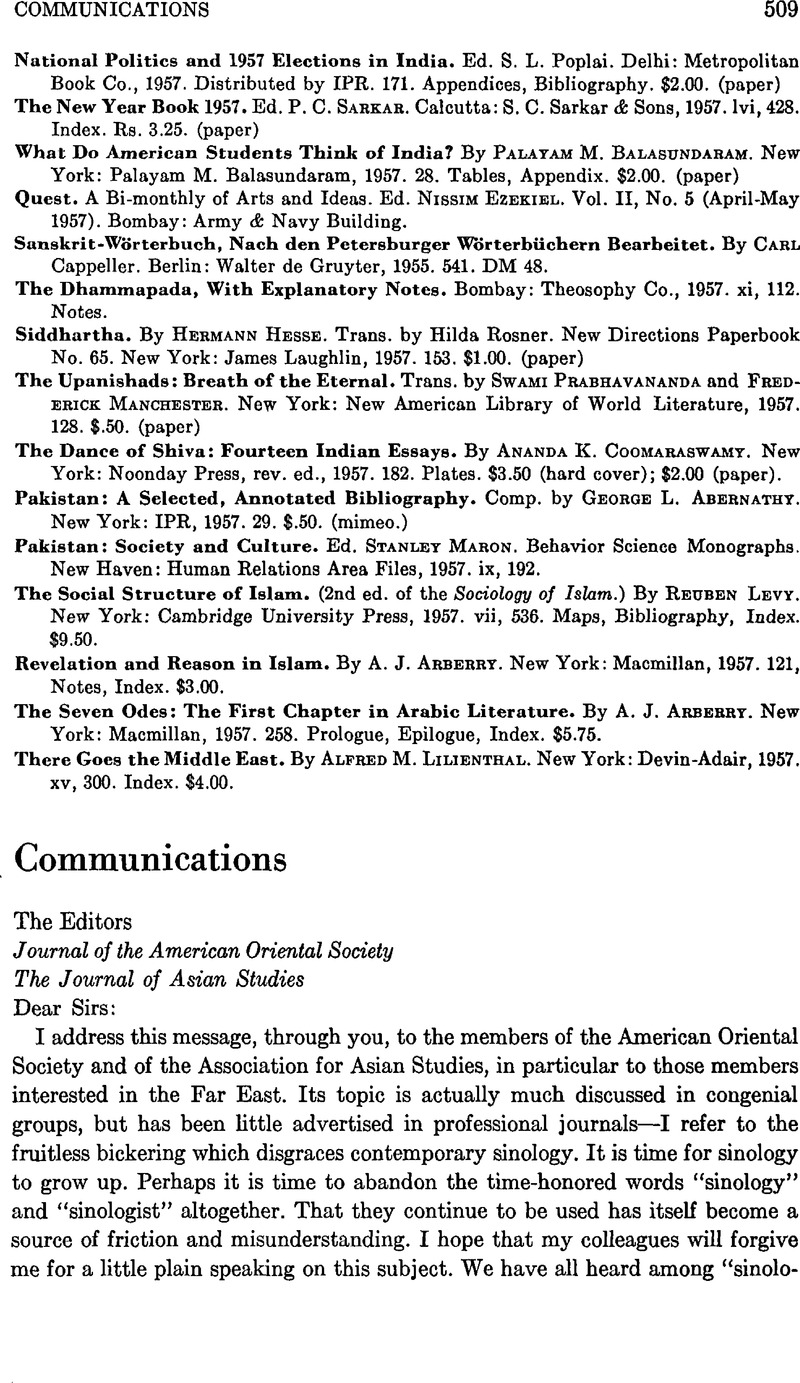Published online by Cambridge University Press: 23 March 2011

1 I use the term “philology” not, as formerly, as a synonym of what we now call “linguistics,” but approximately in the sense of Webster's New International Dictionary (2nd edition), which begins, “The study of the cultures of civilized peoples as revealed chiefly in their languages, literatures, and religions…” I prefer my own definition: “the analysis and interpretation of textual remains, employing such aids as epigraphy, palaeography, exegesis, the lower and higher criticisms, leading to the study of literature as an immediate expression of the intricacies of culture and the subtleties of the mind.” Philology, like the humanities generally, aims at knowledge on a comparatively low level of abstraction, as compared with sociology for instance, though its techniques may be highly abstract. Ultimately it is concerned with the concrete, the personal, the immediate, the crystallized, and the expressive, and therefore with biography, with imagery, with metaphor, and with myth. The house of philology, like the house of history, has many mansions. I think there is room in my definition for the critic of style, the folklorist, the lexicographer, and many others.
2 See M. Buttle, The Sweeniad (1958), p. 41. It is suggested that Myra Buttle is a pseudonym for an unknown person who lives in Cambridge, Eng. It is whispered that there is a deep significance in the fact that she quotes Chinese with accuracy and pertinence.